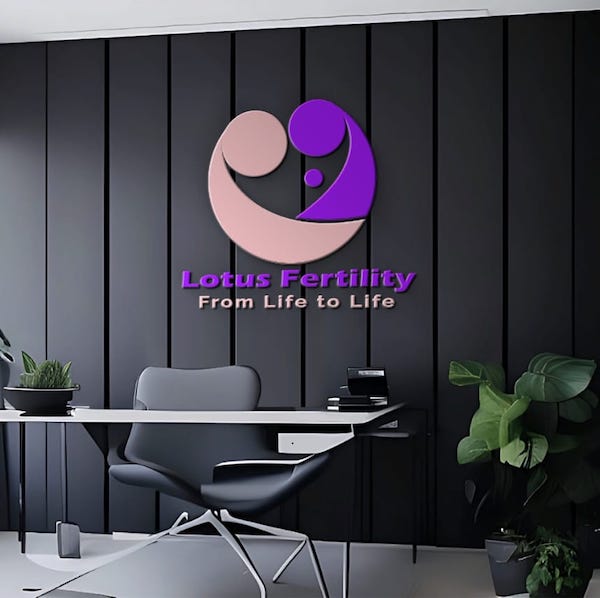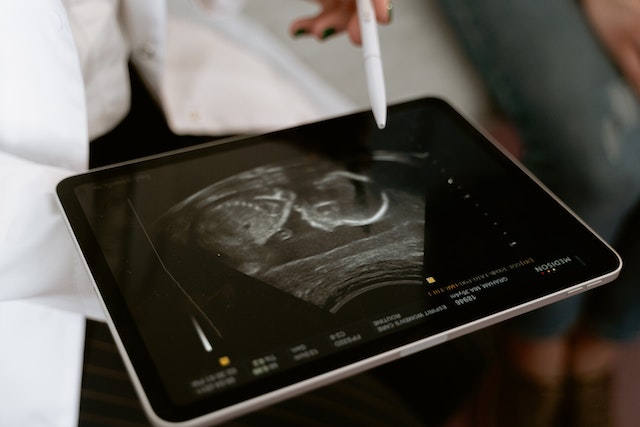SERVICES
Your successful journey to parenthood is our passion
Lotus Fertility is a leading fertility service provider dedicated to guiding individuals and couples on their pathway to parenthood. We offer a comprehensive range of services, including surrogacy and donor programs, as well as consultancy on other fertility services. With our compassionate and experienced team, personalized approach, and commitment to ethical and transparent practices, we provide tailored solutions that align with your unique needs. Our extensive network of reputable clinics, specialists, surrogates, and donors, combined with our holistic support services, ensures that you receive the utmost care and guidance throughout your fertility journey. At Lotus Fertility, we are dedicated to making your dreams of building a family come true, one step at a time.
TREATMENTS
We can help you with
We facilitate the realization of parenthood in a number of ways, here are some.

Surrogacy Program
We offer custody-assured international IVF and Surrogacy Programs
A surrogacy program is a comprehensive and collaborative process where a surrogate mother carries and gives birth to a child on behalf of intended parents who are unable to conceive or carry a pregnancy themselves. It involves a series of legal, medical, and emotional steps, including the selection and screening of a surrogate, medical procedures such as in vitro fertilization (IVF) to create embryos, and the establishment of a legal agreement outlining the rights and responsibilities of all parties involved. The surrogacy program provides a pathway to parenthood, allowing individuals and couples to fulfill their dreams of having a child with the help of a compassionate and dedicated surrogate.
At Lotus Fertility, we take pride in helping you through all the minute details of this process. We break things down to make the process as easy and as stress-free as possible to guarantee your success & utmost satisfaction.

Donor Programs
Treatment description
These are programs that facilitate the use of donated reproductive material, such as eggs, sperm, or embryos, to help individuals and couples achieve pregnancy. Donor programs typically involve the careful selection, screening, and matching of donors with intended parents based on their preferences and specific needs. These programs provide individuals and couples with the opportunity to build a family when they are unable to conceive with their own gametes or in cases where genetic conditions need to be avoided.
Lotus Fertility takes pride in its donor program, which features a rigorous selection and screening process to ensure the highest quality donors. Our dedicated team meticulously evaluates potential donors based on comprehensive criteria, allowing us to provide intended parents with a diverse pool of carefully vetted and selected donors to match their specific preferences and requirements.

IVF Programs
IVF, or in vitro fertilization, is an advanced reproductive technology that helps individuals and couples overcome fertility challenges. It involves retrieving eggs and collecting sperm, which are then fertilized in a laboratory to create embryos. After a few days of careful monitoring, the embryos are transferred to the uterus of the intended mother or a gestational surrogate. IVF offers various techniques to address specific fertility issues and has provided hope for individuals facing obstacles such as tubal blockages, low sperm count, advanced maternal age, or unexplained infertility. With its success influenced by factors like embryo quality and the expertise of the medical team, IVF has revolutionized reproductive medicine, making parenthood achievable for many.
Lotus Fertility excels in IVF, providing advanced technology and personalized care. With a team of highly skilled specialists and a state-of-the-art laboratory, we offer individualized treatment plans and compassionate support, ensuring the best possible outcomes for individuals and couples on their IVF journey.

Consultancy
We go beyond surrogacy and donor programs, offering exceptional consultancy services in various other fertility fields. Our team provides comprehensive guidance and support on Assisted Reproductive Technologies (ART), such as in vitro fertilization (IVF), Intracytoplasmic Sperm Injection (ICSI), and intrauterine insemination (IUI). We understand the intricacies of each procedure and are dedicated to helping individuals and couples navigate the complexities of these fertility treatments. Additionally, we provide expert advice on fertility preservation options, ensuring that individuals have the opportunity to preserve their fertility for the future.
Take advantage of our exceptional consulting services at Lotus Fertility. Our experienced team is here to provide personalized guidance, answer your questions, and empower you with the knowledge you need to make informed decisions, ensuring the best possible outcomes on your path to parenthood.
FAQ
Frequently Asked Questions
Initial Consultation: Intended parents meet with a surrogacy agency or fertility clinic to discuss their desires, goals, and eligibility for surrogacy. The agency or clinic may also provide information about the process, legal considerations, and financial aspects.
Matching and Screening: Intended parents and potential surrogates are matched based on compatibility and shared preferences. Surrogates undergo a thorough screening process, including medical and psychological evaluations, to ensure their suitability for the surrogacy journey.
Legal Process: The intended parents and the surrogate, along with their respective legal representatives, enter into a legal agreement that outlines the rights, responsibilities, and expectations of all parties involved. This agreement typically covers matters such as compensation, medical decisions, and parental rights.
Medical Procedures: If using gestational surrogacy, the intended mother or an egg donor undergoes ovarian stimulation and egg retrieval to obtain viable eggs. The eggs are then fertilized with the intended father's sperm or donor sperm through IVF. Once the embryos are formed, one or more embryos are transferred into the surrogate's uterus.
Pregnancy and Support: The surrogate carries the pregnancy, receiving regular medical care and support from healthcare professionals. The intended parents and the surrogate may maintain open lines of communication and establish a supportive relationship throughout the pregnancy.
Birth and Legal Parentage: Upon the birth of the baby, legal processes are initiated to establish the intended parents as the legal parents. This often involves obtaining court orders or parental orders, depending on the jurisdiction, to legally recognize the intended parents as the child's legal guardians.
It's important to note that surrogacy processes can be complex and may involve additional steps or variations depending on the specific circumstances and legal requirements of the jurisdiction in which the surrogacy takes place. Consulting with experienced professionals and legal experts in the field of surrogacy is essential to navigate the process successfully.
According to the latest available data, the success rates for donor egg IVF can range from around 50% to 70% per embryo transfer, depending on various factors. These rates may increase with multiple embryo transfers or subsequent cycles.
It's important to note that success rates can vary between clinics and individual cases, and they should be discussed with a fertility specialist who can provide personalized information based on specific circumstances. Factors such as the age and health of the recipient, the quality of the donor eggs, and the expertise of the medical team all play a role in determining the success of the donor egg IVF process.
It's important to discuss your preferences and requirements with the fertility clinic or agency you are working with. They will be able to provide you with information on the availability of donors in your area or help you explore options for finding a suitable donor, whether they are local or from a different location. Keep in mind that working with a reputable clinic or agency ensures proper screening, coordination, and legal processes are followed, regardless of the donor's location.
Age: Donors are typically between the ages of 21 and 32, although this can vary. Younger donors tend to have better egg quality and higher success rates.
Medical and Genetic Screening: Donors undergo a comprehensive medical evaluation, including physical and psychological assessments, to ensure they are in good overall health and free from any significant medical conditions or genetic disorders.
Reproductive Health: Donors should have a regular menstrual cycle and demonstrate good ovarian function. They may undergo hormone testing, ultrasound scans, and other assessments to evaluate their reproductive health.
Non-Smoker: Donors are generally required to be non-smokers and should not use any recreational drugs or alcohol excessively.
Education and Intelligence: Many intended parents seek donors who have completed or are pursuing higher education to match their desired traits.
Personal and Family History: Donors are typically asked to provide detailed personal and family medical histories to assess the risk of inherited conditions or diseases.
Legal and Psychological Readiness: Donors may undergo legal counseling and psychological evaluations to ensure they understand the legal and emotional implications of the donation process.
It's important to note that these requirements can vary, and additional criteria may be imposed based on local laws and regulations or specific preferences of intended parents. Each fertility clinic or agency will have its own set of guidelines and screening processes to ensure the suitability and health of their donors.
Some common expenses associated with fertility services may include:
Consultation and Diagnostic Testing: There may be fees for initial consultations, medical evaluations, and diagnostic tests to assess fertility health and identify any underlying issues.
Fertility Treatments: The cost of specific fertility treatments such as IVF, IUI, or fertility preservation can vary. This includes procedures such as ovarian stimulation, egg retrieval, embryo transfer, and laboratory services.
Medications: Fertility medications used to stimulate egg production or support the reproductive process may incur additional costs. These medications can vary in price depending on the specific drugs prescribed and the dosage required.
Donor or Surrogate Fees: If utilizing donor eggs, sperm, or embryos, there will typically be fees associated with compensating the donors. Similarly, if engaging a surrogate, there will be costs related to the surrogate's compensation, medical expenses, and legal processes.
Ancillary Services: Additional services such as genetic testing, counseling, embryo freezing or storage, and embryo or sperm/egg shipping may have associated costs.
It's important to have a comprehensive understanding of the costs involved in your specific fertility journey. Consulting with a fertility clinic or financial counselor can provide you with detailed information about the anticipated expenses, available financing options, and any insurance coverage that may apply. Remember that the cost of fertility services can vary, and it's crucial to consider both the financial and emotional aspects of the journey when making decisions.


